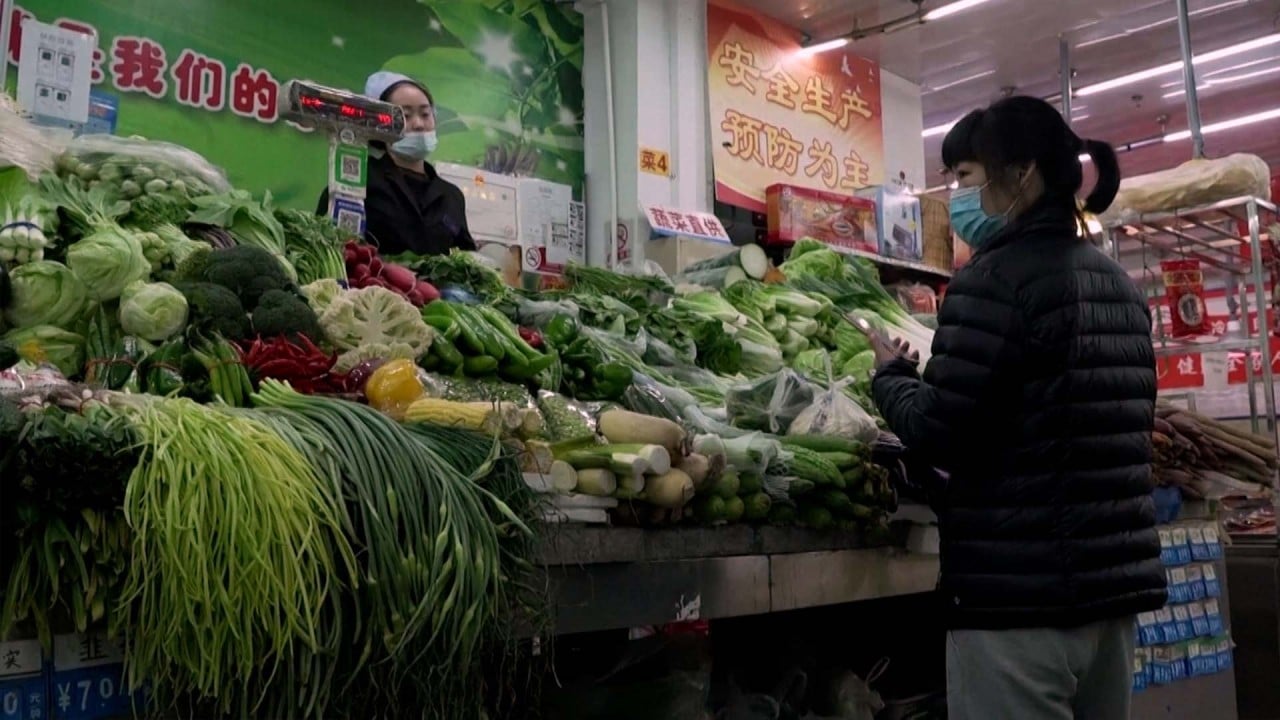China warned to brace for US stimulus tapering, rate increases with Jerome Powell to remain as Fed chair
- Jerome Powell was nominated by US President Joe Biden on Monday in Washington to serve for a further four years as chair of the US Federal Reserve
- Further policy divergence between the world’s two largest economies is seen as being of particular concern as Beijing is moving towards loosening its support

Jerome Powell’s nomination for a second term as chair of the US Federal Reserve has fuelled market expectations of faster-than-expected stimulus tapering and earlier than expected interest rate increases, triggering calls for China to make early preparations for the United States normalising its monetary policy.
Powell, 68, was officially nominated by US President Joe Biden on Monday in Washington to serve for a further four years, with the more dovish figure of Lael Brainard put forward as vice chair, although both are still pending approval by the US Senate.
Further policy divergence between the world’s two largest economies is seen as being of particular concern as Beijing is moving towards marginal loosening of its monetary policy to support its slowing economic growth, suggesting the necessity for bilateral coordination to manage spillover effects for the rest of world.
“The nomination could fuel market expectations for rate hikes to help contain inflation,” China International Capital Corporation said on Tuesday.
“It will also help the communications between the Fed and market, and facilitate financial stability.”
The nomination comes at a time when containing inflation has become the top economic priority for the Biden administration.
US inflation has risen above 5 per cent for six straight months and hit a decade-high of 6.2 per cent in October, pushing the current inflation rate above the average target of around 2 per cent.
The US Federal Reserve announced a reduction in its monthly bond purchases by US$15 billion in November and December, suggesting an end of the current taper by June.
“In face of rising inflation, Powell’s attitude may turn hawkish at any time,” said China International Capital Corporation analysts Zhang Wenlang and Liu Zhengning.
“Looking forward, the Fed may quicken the pace of tapering. One of the scenarios is to double the monthly bond reduction to US$30 billion, making the taper to end in March rather than previously estimated June.”
Ding Shuang, chief Greater China economist at Standard Chartered Bank, said China needs to pay attention because the US will not change the direction of its tightening.
A rate increase is often accompanied with a massive capital flow from emerging markets to the US, potentially bringing disastrous results to small economies.
“China may relax its monetary stance given growing downward risks. It will mark further policy divergence from the US,” said Ding.
Premier Li Keqiang on Monday acknowledged the economic pressure China is facing during a meeting with around 10 provincial governors and ordered more policy support for market entities.
Beijing is facing a rising call for policy relaxation amid a slowdown in the economy.
Renmin University said at the weekend that China’s fourth quarter gross domestic product growth rate could slow to 3.9 per cent from 4.9 per cent in the previous quarter, with Morgan Stanley estimating a growth rate of 3.3 per cent.
The International Monetary Fund suggested on Friday that China’s monetary policy should be accommodative, given the low level of consumer inflation and the overall economic slowdown.
Chinese financial regulators have attempted to drive up market confidence, saying that Beijing has learned a lot from the 2015-17 market turmoil and is now better equipped with policy tools to deal with an overseas stimulus exit.
The US dollar may strengthen in the short term, exerting pressure on the yuan exchange rate. But this may be exactly what it wants
Ding believes the impact on China will be smaller than seen six years ago because it reacted before the US on this occasion, creating more room to manoeuvre.
“China has stayed calm this time because market expectation is stabilised and the country has accumulated lots of [foreign exchange] assets,” he said.
“The US dollar may strengthen in the short term, exerting pressure on the yuan exchange rate. But this may be exactly what it wants.”
In its third quarter monetary policy report released on Friday, the People’s Bank of China (PBOC) said it will “actively” and “properly” deal with developed countries’ monetary policy adjustments.
“We’ll take the initiative in our own hands, and control the policy pace according to domestic economic situation and price changes,” the report said.
The PBOC also pledged to increase the elasticity of the yuan exchange rate, maintain its basic stability and improve the prudential management of cross-border capital flows.
